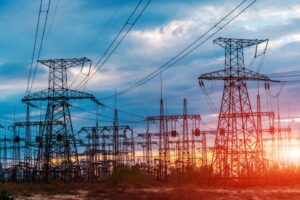
A sudden power outage plunged 17 states in Northern Nigeria into darkness, affecting millions. The blackout was triggered by a fault in the 330KV Ugwuaji–Apir transmission lines, resulting in a loss of 468MW.
The incessant grid collapse in Nigeria has unleashed a wave of despair on the nation, disrupting daily lives, crippling businesses, and pushing residents to the brink of survival.
The nation’s national grid has collapsed 10 times in 2024, with significant incidents occurring in February, March, April, July, August, and October. The frequency of collapse has been a persistent issue, with 93 recorded collapses during the previous administration.
Power Disruption in the North
The disruption of electricity supply to the northern part of the country was attributed to the vandalization of the Shiroro-Kaduna transmission line. The Transmission Company of Nigeria (TCN) explained that insecurity had delayed repairs but assured it was working tirelessly to restore the bulk power supply.
Residents of the affected areas lamented the disruption, saying it had impacted all facets of their daily lives. Patients at the Aminu Kano Teaching Hospital (AKTH) in Kano said mosquitoes disrupted their sleep, especially at nights when the power from generating sets was off.
The Kano Electricity Distribution Company (KEDCO) attributed the prolonged outage to issues on the national grid and vandalism on critical transmission lines. The company assured that efforts to restore supply were underway.
The Blight of Vandalism
Hoodlums have vandalized electrical transformers in communities like Anguwan Rogo and Gangare in Jos North Local Government Area. Residents reported that the vandalism had left them in darkness for over six days.
In response, the Jos Electricity Distribution Company (JED) urged residents to safeguard electrical installations.
Overwhelming Challenges
The Federal Government has assured of its commitment to speed up the pace of work to restore electricity to all the affected states in the Northern region. The Minister of Power, Adebayo Adelabu, announced that electricity would be fully restored to the region within the next 14 days.
Experts have proffered solutions, including the need to fortify the existing grid systems, diversify energy sources, and decentralize the grid.
Ifeanyi Ukuwuoma, CEO of Powerfull Technology Limited, emphasized the need for renewables. “Diversifying energy sources is another crucial step. The government should focus on promoting renewable energy sources like solar and wind, which can be distributed throughout the grid.”
Babatunde Osadare, a senior official at Ikeja Electric, also emphasized the importance of the Supervisory Control and Data Acquisition (SCADA) system: “Collapse may happen when the frequency is too high or low due to real-time energy demand and generation. Difficult to balance without SCADA tools that help with real-time grid monitoring.”
Ayoola Oginni, power consultant and energy expert, pointed out that decentralizing the grid is critical to reducing failures. “The Nigerian government should speed up efforts to decentralize the national grid. This can be through mini-grids driven by renewable energy sources like solar photovoltaic and wind turbines.”
Oginni explained that issues like overload, outdated infrastructure, and vandalism contribute to grid instability. He urged the government to approve a new constitutional amendment to allow states to generate and transmit their electricity.
“The government should approve the constitutional amendment bill to allow state governments to generate and transmit their own electricity. This presents an opportunity for investors and industries to participate in the Nigerian energy market. Also, the states or businesses can transmit excess supply to the national grid. Micro-grid projects could also expand to send excess power to the national grid,” he added.
The recent power outage in Northern Nigeria has laid bare the fragility of the country’s electricity infrastructure, exposing deep-rooted issues that require urgent attention. Stakeholders must prioritize investment in modernizing infrastructure, improving security against vandalism, and diversifying energy sources to prevent future crises.
The impact of the power outage on businesses and households has been devastating. Frozen food vendors have reported losses, saying they are unable to store perishable goods without electricity. Patients at hospitals have been forced to endure mosquito-borne illnesses due to the lack of power. Artisans and small business owners have been unable to operate their machines, resulting in significant financial losses.
The situation is dire, and the government must take immediate action to address the issue. The Minister of Power’s assurance that electricity would be fully restored to the region within 14 days is a step in the right direction, but more needs to be done to prevent future outages.
The Nigerian government must prioritize investment in the power sector, focusing on modernizing infrastructure, improving security, and diversifying energy sources. This will require a collaborative effort from stakeholders, including the government, private sector, and civil society.
Only through a concerted effort can Nigeria hope to restore stability to its power grid and ensure that its citizens no longer endure the Blackout crisis.

